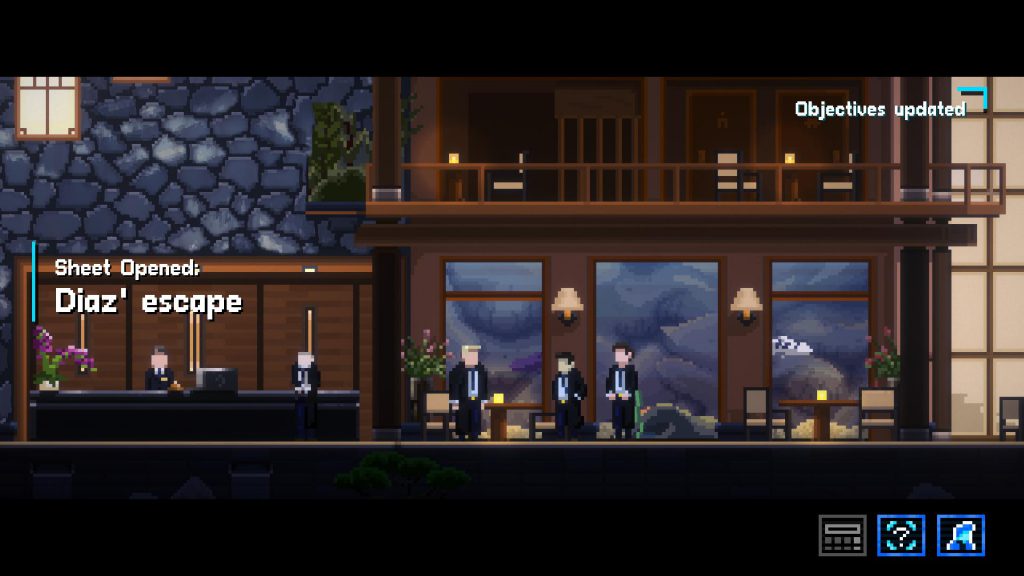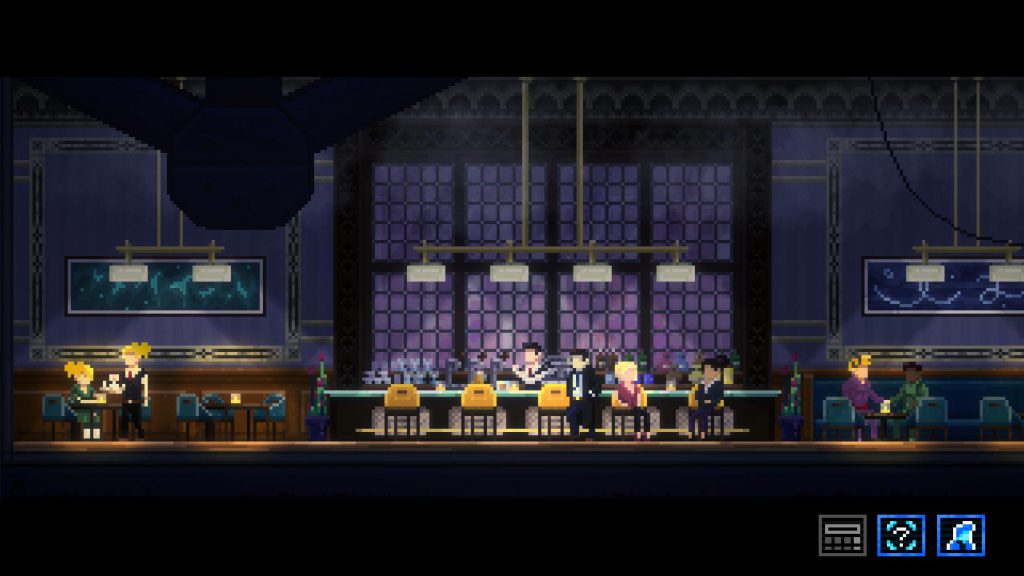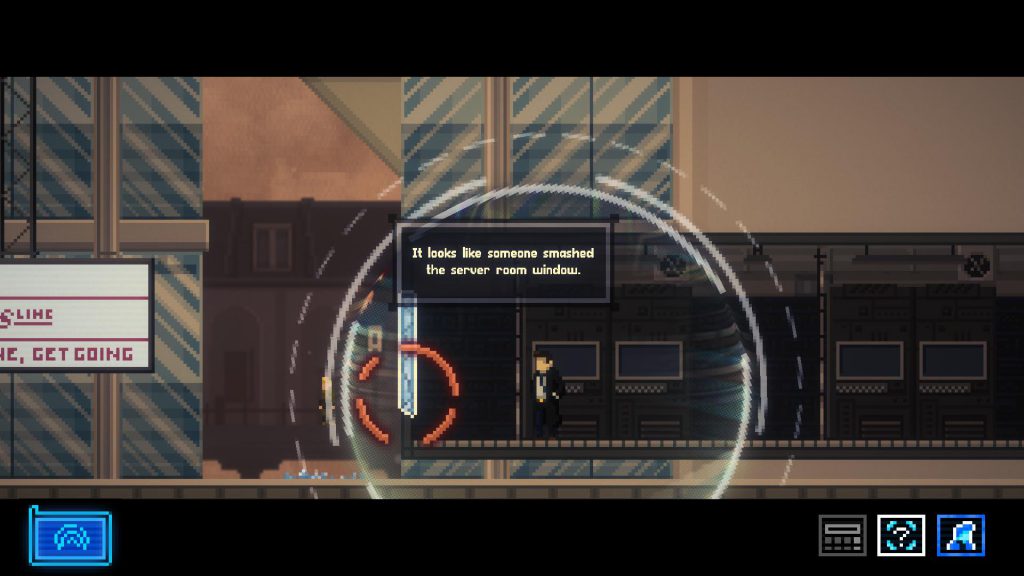A bit of an odd one, Lacuna. On the one hand it’s a classic slice of Noir played straight, with scifi flourishes. It plays simply, until you hit an investigative sequence. At this point it may well not be as twisting and winding as it seems to think it is. So, it’s odd. Both satisfying and unsatisfying. Is it a good detective story? Yes, with a few caveats. A good game? Lacuna feels like a game that gets in the way of itself pretty consistently, so I’m honestly not sure.
Digging into this, most of Lacuna’s investigation is comprised of filling in a multiple choice question based on what you’ve learned in the game – which is a really, really cool idea, and seems like it leads to a lot of permutations within the wider narrative, ably tackling a great failing of say… LA Noire, wherein the case always has a single outcome no matter how badly you screw up. There are genuine stakes at play, which this gameplay loop reinforces very elegantly. However, the manner in which you, the player, actually do these things is borderline obnoxious. Simply put, the way in which the player engages with these menus just lacks that little bit of polish. I was frequently frustrated when, trying to back out of a sheet to check clues, I straight up went back into gameplay from the menu. It just felt strangely awkward, and never failed to drag me straight out of the ambience Lacuna works so very hard to establish.
Which is a damn shame – the music, artwork and general vibes of this game are very strong. The city you bumble around on trains has a wonderful, lived in texture and a real sense of time and energy. People move around, vehicles fly overhead, news rolls through on screens. It has a very heady atmosphere which is leagues stronger than the narrative at hand. The thing with a lot of the best detective stories is that the actual case doesn’t really matter. Not even Raymond Chandler himself could tell you what the hell happens in The Big Sleep. With Lacuna, the case is very easy to crack on your own before it even begins to spin up into gear. Sure, it’s still effectively told, but before the first act had even ended I’d managed to solve the case and figure out twists long before they were even raised. What Lacuna then needs would be strong character interactions to really make it work.

Sadly, it’s a little flat here too, save for one key relationship. The dynamic between Cat and Neil is very nicely done, with a very emotive and empathetic exploration of a long dead relationship coming back to life on a few stray embers. It has what the rest of the game lacks; a sense of heart and soul. The thematic work on display is absolutely well done, and interesting, but for me – I need a story to engage my heart as well as my brain. I can only take so much talking about nihilism before I wonder just who they are, and what they do. In Lacuna, certain characters only exist to be talking points. Well written talking points sure, but they lack the character of the setting. There’s no history, no wider purpose.

I am very much reminded of Backbone, another 2D pixel art detective story. Backbone is a game which shares a lot of similarity in the themes it tackles through a noir lens – class, wealth disparity. The violence the few inflicts on the many in pursuit of a juicier profit margin. But Backbone lingers on bodies, on minds, on traumas more consistently than Lacuna, and holds a greater care to its cast. It is one, singular story told with a definitive ending.
Herein lies the rub for Lacuna, I feel. The flexibility of the narrative is enticing – but ultimately, it ends in the way so many games with these goals do. It all ends in a slideshow. Art and a monologue, explaining things in a sharp wrap up. In this instance, the ending feels thin. It’s not enough. It is Lacuna in micro – so close, yet just a little too far away to be a full recommendation.
Lacuna is available on Xbox, Playstation, PC and Nintendo Switch.